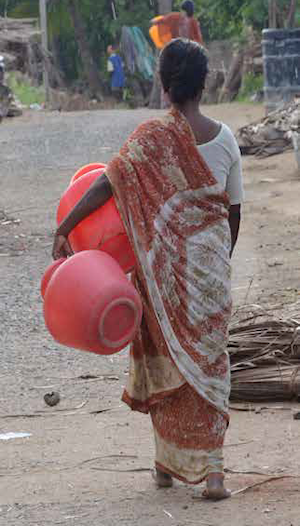
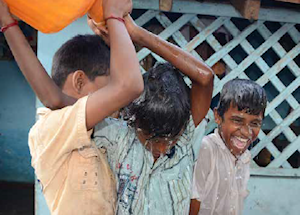
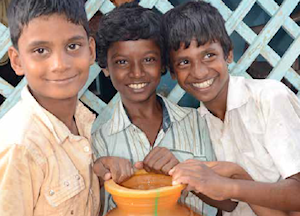
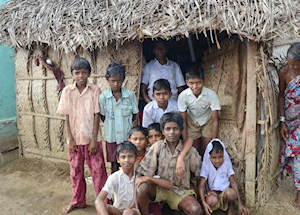
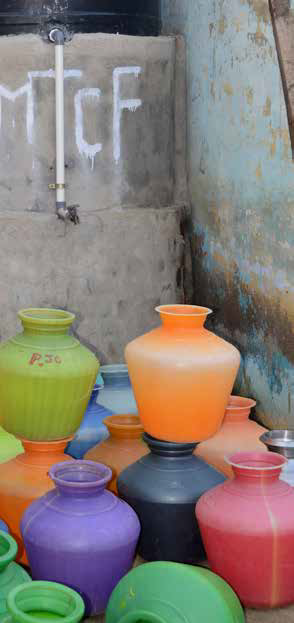
MTCF water wells bring hope
Mother Teresa Children's Foundation is constructing clean, fresh water sources in rural areas without access to water. The most recent bore well was completed during the summer of 2012 and now serves 400 families in the state of Tamil Nadu in the village of Poosaripetty.
Prior to the MTCF bore well, the village only had access to the government water supply a maximum of two days per week. According to the local people, it was common for water to only be available one day per week and flow for about 30 minutes to one hour.
Water scarcity is acute throughout India. Millions lack access to clean water in rural and urban regions. The government is unable to deliver infrastructure to India's bursting population and the country is buckling under the strain. The staggering population of nearly 1.3 billion people creates constant competition among families for natural resources, like water. The result—families struggle each day without basic needs including clean water, sanitation and electricity.
With the limited supply, not everyone in Poosaripetty had sufficient time to collect enough water each week for washing and drinking before the new bore well was constructed. Families would spend time worrying and devising methods for finding enough water to survive. Often, rather than children attending school, they would keep watch, buckets in hand, constantly monitoring the government provided water source so they would be prepared to immediately collect water for the family when it became available.
The people of Poosaripetty are marginalized in most every area of their lives. They comprise the lowest castes in Indian society and lack adequate shelter, food, education and medical care.
Most of the villagers earn the equivalent of about one USD per day making thatch for roofs. They sit and weave dried leaves together to create sheets of thatch for local housing. Generally, they have large families, with several children. Almost everyone in the village is illiterate. School attendance is low.
Families need children to work to earn extra money. The parents believe that the more children in the family, the greater the labor force they can create. School and education is not a priority.
The village leaders and residents are amazed that the water well provided by MTCF "belongs to them." According to MTCF president, Dr. Sajan George Kavinkalath, the people have been deprived for so long, they can hardly fathom the concept of abundant, clean water in their own village.
In addition to the main collection point, MTCF also provided the village with a 100-liter tank that stores excess water. The storage tank is crucial because of periodic government initiated electrical power cuts.
The new bore well is noted for providing "very good water." According to Dr. Sajan George Kavinkalath, MTCF president, water from many sources in the region is salty. "This is sweet, tasty water," he said.
The abundant water in the village improves the quality of life in numerous ways. Many communicable diseases in India are related to unsafe water. Because of the clean water, the overall health and hygiene of the village is improving.
While this village celebrates, many others still lack water. Recently, a woman from the village of Almarathur traveled to Poosaripetty when she heard MTCF president Dr. Sajan George Kavinkalath was in the area to celebrate the completions of MTCF's newest bore well. She came as a representative of the 500 families located about 35 km away to plead for MTCF to provide a bore well for their village, which is also in desperate need of a solution to the ongoing water crisis.